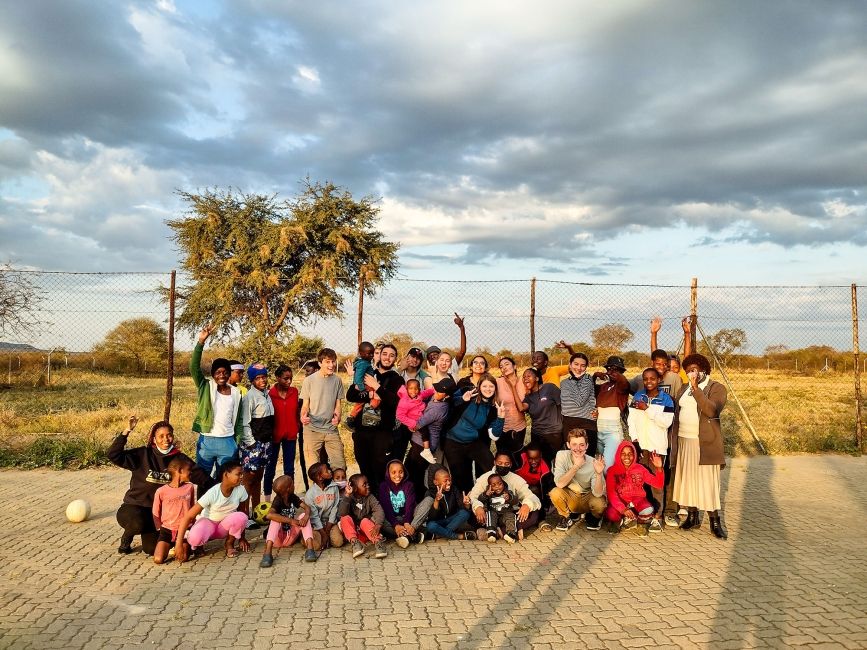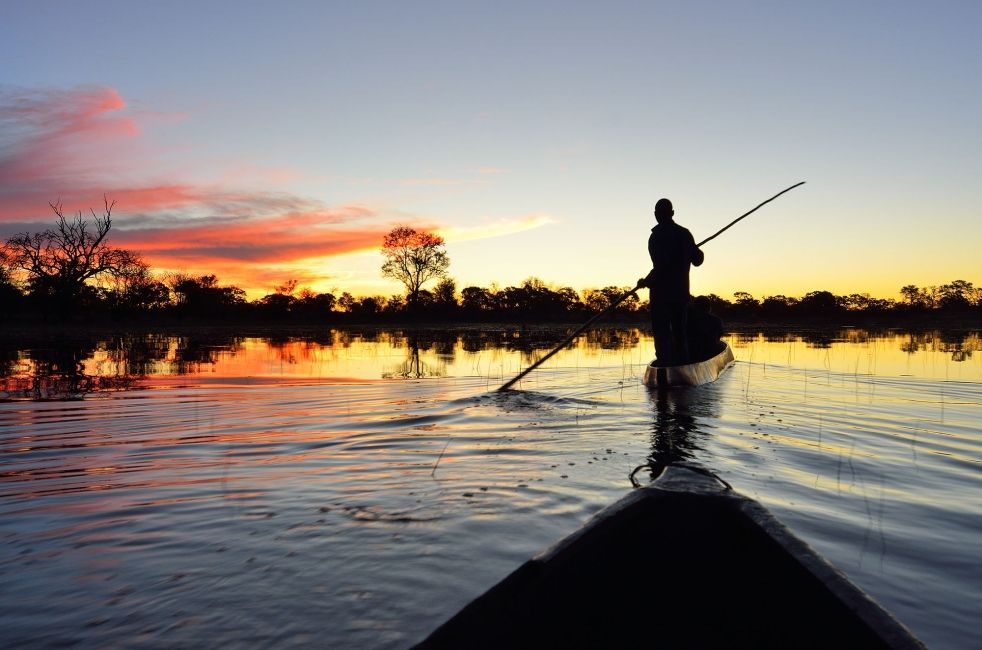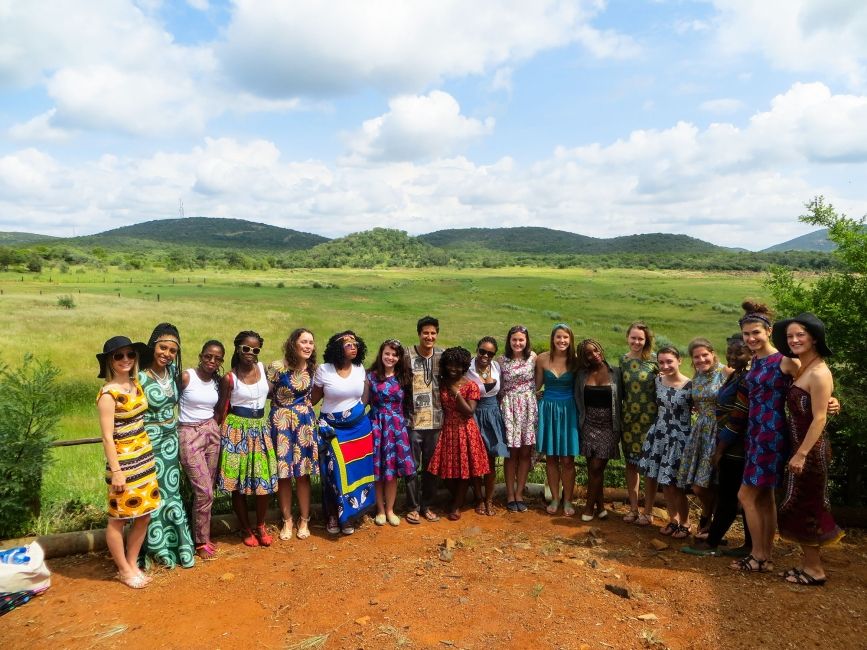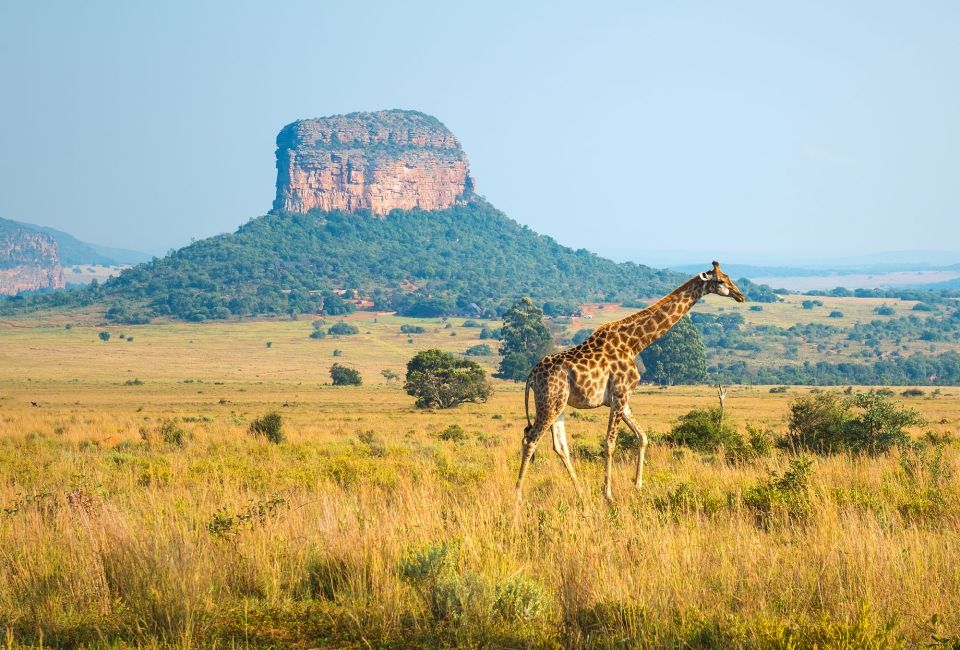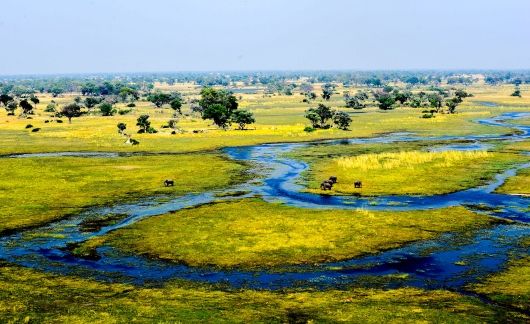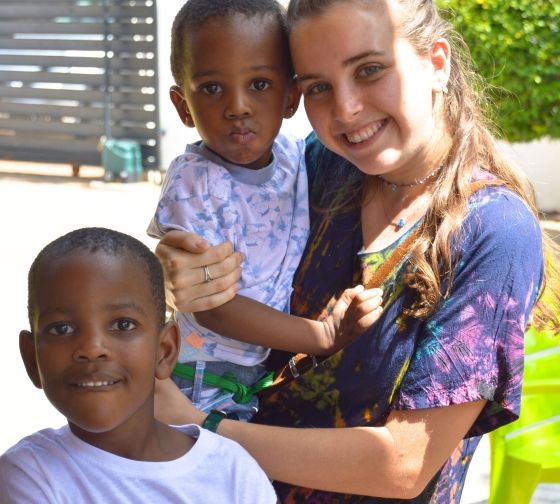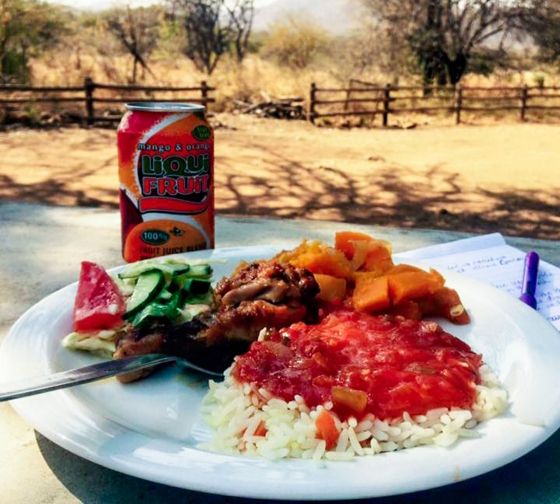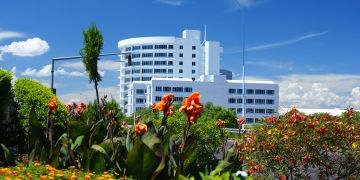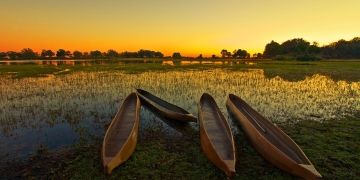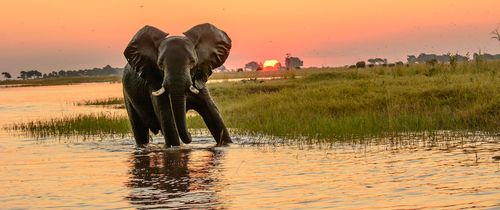
Summer Wildlife Ecology + Conservation
Unique Experiences
Practice field techniques
used in wildlife conservation
Experience one of Africa’s most renowned game reserves
through an integrated STEM curriculum combining life sciences, conservation, and environmental sciences
Engage with local communities
to learn about human-wildlife conflict and its role in sustainable wildlife conservationto learn about human-wildlife conflict and its role in sustainable wildlife conservation
The Destination
Gaborone is Botswana’s welcoming capital, known for its warm climate, peaceful atmosphere, and rich cultural traditions. The city offers access to vibrant markets, local music and art scenes, and nearby natural nature reserves like Mokolodi Nature Reserve. Whether you are majoring in public health, environmental science, business, communications, liberal arts, or African studies, Gaborone is the perfect place to study abroad.
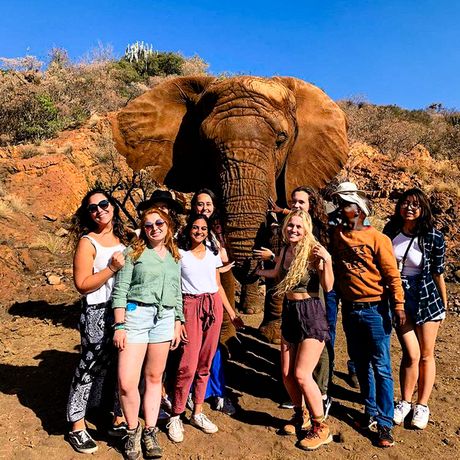
Program Highlights
- Academic Courses: Choose from CIEE courses that align with your academic major.
- Immersive Experiences: Participate in activities, excursions, study tours, and more that showcase your host city's culture, values, and local art, film, music, cuisine, and sports scenes.
- Cultural Projects: Volunteer with members of the local community and attend local workshops and events to get to know your host city.
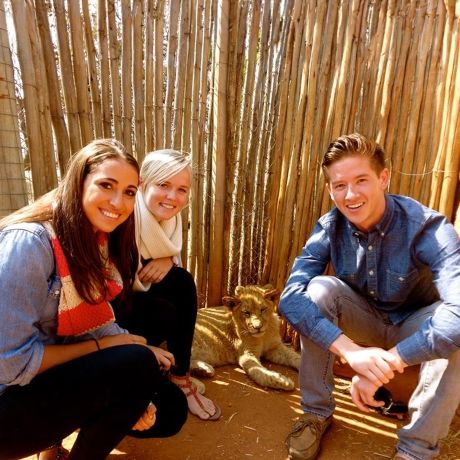
Excursions & Activities
CIEE’s excursions and cultural activities in Gaborone will open doors for you to explore Botswana’s rich diversity, language, culture, history, and timeless beauty in ways that will enhance your time abroad.
Samples of past excursions and activities:
- Travel to Okavango Delta to engage in face-to-face discussions with villagers on issues of human-wildlife conflict and conservation
- Interview stakeholders engaged in wildlife conservation in Botswana to understand challenges and success
- Explore Botswana’s rich history during excursions such as a visit to a cultural village and a museum Tour
Please note: Activities are based on past programs and are subject to change at CIEE's discretion to adapt to local circumstances and participant feedback. Our goal when arranging activities is always to enhance your experience.
Program Blogs
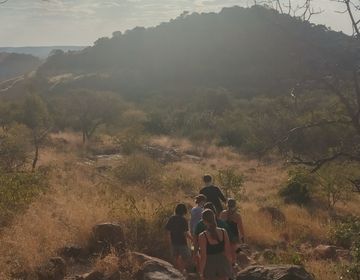
Traveling In and Beyond Botswana While Studying in Gaborone
Before coming to Botswana, one of my biggest questions was whether I would be able to travel within and beyond the country and explore other places across southern Africa. Sure... keep reading

Books I Read While in Gaborone
Before coming to Botswana I did a bit of research into the nation’s literature, wanting to read up on a country I knew relatively little about. Not particularly interested in... keep reading
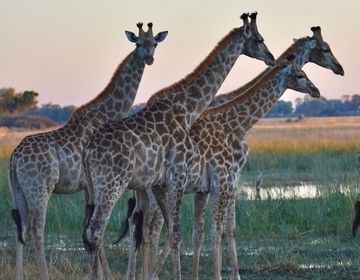
Reflections on Summer Wildlife Ecology + Conservation in Gaborone, Botswana
The Summer Wildlife Ecology and Conservation program provides numerous opportunities I count myself incredibly lucky to have experienced: witnessing wild elephants, ostriches, zebras, giraffes, hippos, and others in their natural... keep reading
Housing & Meals
Housing
CIEE Gaborone offers diverse housing options to ensure you’re comfortable in your home away from home. From homestays to on-campus shared apartments, your accommodation preferences will be met.
Standard Housing: Includes a single room at a homestay or in a shared residence apartment.
- Homestays: Homestays boast a kitchen, living room, and bathroom shared with a host family and are located under 60 minutes from CIEE Gaborone.
- Shared Apartments: Shared apartments feature a shared kitchen, bathroom, and living room and are situated on campus, roughly a 10-minute walk to CIEE Gaborone. Students living on campus will be provided with basic cooking utensils and a stove to prepare their own meals.
A note: The default criterion to assign housing is first-come, first-served; however, other factors may also be considered. If we cannot accommodate your first housing choice, we'll let you know before you arrive. Non-standard housing options require an additional fee that can be found in the program Dates and Fees.
Meals
- Homestays: Students have breakfast and dinner with their host families and are responsible for their own lunch.
- Shared Apartments: Meals are not included, but apartments include shared kitchens for cooking. Additionally, there are dining halls on campus, as well as local restaurants and cafés nearby.
Academics
CIEE Gaborone: Study on the campus of the University of Botswana, the first higher education institution established in the country. The campus is conveniently located within walking distance of Riverwalk Mall – one of the oldest shopping centers in Botswana – where you will find a movie theatre, plenty of restaurants, and shops. CIEE Gaborone is situated on-campus where you will have access to a gym and computer labs.
Course Information
Summer 2026
Note: This course listing is for informational purposes only and does not constitute a contract between CIEE and any applicant, student, institution, or other party. The courses, as described, may be subject to change as a result of ongoing curricular revisions, assignment of lecturers and teaching staff, and program development. Courses may be canceled due to insufficient enrollment.
"(GI)" denotes courses that originated at CIEE's Global Institutes and that are offered at multiple CIEE sites.
Scholarships & Grants
CIEE offers scholarships and grants annually to help students like you make your study abroad dream a reality.
Students who apply to this program are eligible for the following scholarships and grants:
- Wollitzer Merit Scholarships in Area or Comparative Studies
- Ping Scholarships for Academic Excellence
- Ritzmann Tropical and Marine Ecology Scholarships
- Global Access Initiative (GAIN) Grants
- Stohl International Undergraduate Research Scholarships
- CIEE Gilman Go Global Grant
- CIEE STEM Scholarship
To be considered, submit the CIEE Scholarships & Grants application within your CIEE program application.
Dates & Fees
You get more for every dollar when you study abroad with CIEE, because our high-quality programs include everything from excursions to insurance. There are no hidden charges, and no disappointing surprises when you arrive.
Program |
Application Due |
Start Date |
End Date |
Fees & Housing |
|---|---|---|---|---|
| Program Summer 2026 7 weeks | Start Date | End Date | Fees & Housing $8,450 |
To help you budget, keep in mind that students are responsible for the cost of international airfare, local transportation, books and supplies, visas, and personal expenses. In addition, your college or university may charge additional fees for study abroad, or may require you to receive a transcript via CIEE's School of Record, which carries an additional fee of $500.
Program Fees
CIEE offers the most student support of any provider in its program fee, including an airport greeting, full-time leadership and support, orientation, cultural activities, local excursions, pre-departure advising, and CIEE iNext travel protection with benefits.
| Participation Confirmation | $300 |
| Educational Costs | $6,650 * |
| Housing | $1,300 ** |
| Insurance | $200 |
| Total Fees | $8,450 |
Optional Housing
CIEE accommodation options are detailed in the Housing section. Based on availability, Select or Select Plus Housing can be chosen during the application process for an additional fee. Housing is assigned on a first-come, first-served basis; however, other factors may also be considered.
| Select Plus Housing Fee | $1,200 |
Financial Aid
CIEE offers the most grants and scholarships of any study abroad organization, including $8 million/year in travel grants, merit-based scholarships, institutional grants, and Gilman Go Global Grants.
Estimated Costs
Students are responsible and manage costs related to travel, meals, books, and personal expenses. Below are estimates for consideration.
| Meals not included in program fee | $129 † |
| International Airfare | $1,700 †† |
| Local Transportation | $130 ††† |
| Books & Supplies | $25 |
| Personal expenses | $165 †††† |
| Total Costs | $2,149 |
*direct cost of education charged uniformly to all students
**Housing fees listed are for financial aid purposes only and should not be considered a basis for calculation of refunds.
†For students in homestays, families provide 2 meals a day. For students in Residence Halls, you should budget approx. $376 for meals
††Round trip based on East coast departure
†††For homestay budget an additional 100 USD for travel from home to campus
††††If you plan on traveling independently budget for more depending on your plans
What's Included
Tuition
Housing
Pre-departure Advising
Advising before you depart to set goals and answer questions
Optional on-site airport meet-and-greet
Orientation
Introduction to your program plus practical information about living in your host city
On-site Staff
Full-time program leadership and support in your city
Cultural and/or Co-curricular Activities
Excursions and/or Study Tours
Travel Protection
CIEE iNext travel protection
24/7 emergency on-site support
Our Staff
Basetsana Maposa
Center Director
Basetsana Masego Maposa is a seasoned health, gender, and international development professional with over 15 years of experience managing and directing national and multilateral public health projects. She holds two...
Keneilwe Manisa
Program Assistant
Keneilwe completed her Bachelor of Arts in Psychology and Sociology at the University of Botswana in 2022. She started as a student volunteer in 2019 and also has experience with...
Get Started
1
2
Connect With Your Campus Study Abroad Office
Share your plans and confirm you're on track to meet all required steps to go abroad.
3
Contact Us
Send us an email if you still have questions or need information about applying to this program.
